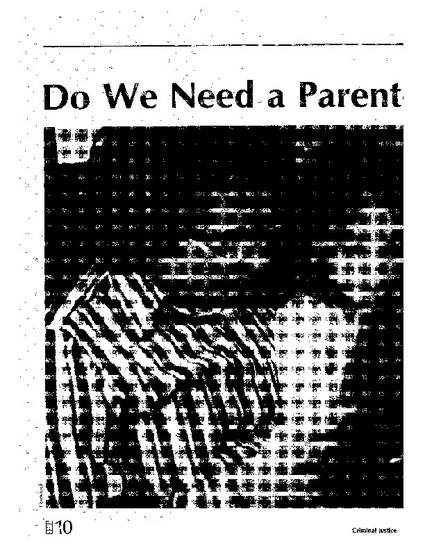
This article addresses proposals to adopt a parent-child privilege, and notes that currently incriminating statements made between parents and children are admissible as evidence. However, there is a popular move to urge codification of a parent-child privilege that would protect any statements made or actions observed within the parent-child relationship. Evidentiary privileges are generally disfavored because they potentially block otherwise relevant evidence, but some relationships, such as the parent-child relationship, deserve assurance that shared confidences will be protected.
To overcome the reluctance to adopt yet another privilege, proponents of the parent-child privilege typically offer a number of justifications. These include arguments grounded on the constitutional rights to privacy and religion, and well as social or policy arguments. None of the various justifications are compelling. The constitutional arguments are grounded primarily on dicta or analogy, and there is no Supreme Court opinion holding that confidential communications are constitutionally protected. The remaining arguments are founded primarily on sociological and psychological viewpoints and are simply insufficient. The need for such information outweighs any constitutional or social interest that the parent and child might otherwise possess.
Nevertheless, prosecutors or police should not necessarily encourage children or parents to “snitch” on the other. But when one of them voluntarily walks into a police station with a garbage bag of drugs or an earful of incriminating statements, the prosecutor should be able to use that evidence.
